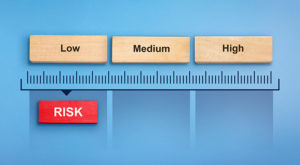It is best practice for homeowners associations to establish and maintain a reserve fund. But, if you have never encountered the subject, understanding your reserves can be somewhat difficult. When it comes to your reserve fund, it pays to know the HOA reserves rule of thumb.
All About HOA Reserves Rule of Thumb
Before you can understand what reserves are, you must first know how a homeowners association works. A homeowners association takes on the responsibility of maintaining the community with the primary objective of protecting property values. Achieving such a feat is impossible without proper funding. But, where does an HOA get its money?
Every association consists of members — homeowners who live in the community. These homeowners pay the HOA monthly dues, most of which go to the operating fund. The association uses this fund to pay for various day-to-day expenses such as landscaping costs, maintenance expenses, and management fees.
But, what about unanticipated costs? This is where HOA reserve fund accounting comes in.
What Are HOA Reserves?
A reserve fund is essentially a savings account for homeowners associations. Whereas operating funds are used for regularly recurring expenses, homeowners association reserve funds typically go toward future major repairs, replacements, and maintenance as well as unexpected costs.
What can HOA reserve funds be used for? You can use HOA reserves to pay for a variety of major expenses down the road.
To cite specific examples, HOAs can use their reserves for future roof replacements, pool retiling, street repaving, gym equipment replacements, and the like. While you can reasonably anticipate these costs, they only come up rarely that it does not make sense to use the operating funds to pay for them.
Why Is the HOA Reserve Fund Important?
 A reserve fund is vital to any homeowners association because it acts as a safety net of sorts. When unexpected expenses come up, you can dip into your reserves to cover the cost. But, when an HOA has no reserves, you are typically left with two options.
A reserve fund is vital to any homeowners association because it acts as a safety net of sorts. When unexpected expenses come up, you can dip into your reserves to cover the cost. But, when an HOA has no reserves, you are typically left with two options.
The first option is to impose a sudden increase in homeowner dues. And we’re not talking about a small increase here. To cover the cost of a major expense, you will likely need to raise dues by a lot. After all, a $10,000 replacement job isn’t going to pay for itself.
The second option is to levy special assessments. Although this differs in name from the first option, it fundamentally accomplishes the same goal. Special assessments are one-time fees an HOA charges to homeowners. And, in a handful of states, there are limits to how much your HOA can impose in special assessments.
Neither the first nor second option are particularly popular among homeowners. When faced with a sudden significant dues increase or a large special assessment, homeowners will likely get angry and challenge the HOA. Additionally, these options basically punish current homeowners because previous HOA boards failed to appropriately plan for the reserves.
Are Homeowners Obliged to Contribute to the HOA Reserve Funds?
This is a question that many homeowners in HOA communities ask. Is it really necessary for homeowners to make reserve fund contributions? The simple answer is yes. For many HOAs, contributing to the reserve fund is mandatory for homeowners.
Most associations typically calculate reserve fund contributions when they prepare the annual budget and determine how much to charge in monthly dues. Because the contributions are incorporated into the dues, homeowners will likely not even feel it. That being said, HOA boards do need to present the budget to all members, and that will include reserve fund contributions.
Understanding HOA Reserve Fund Requirements
Now, you know what HOA reserves are, why they are important, and that contributions are mandatory for homeowners. But, what about the HOA reserves rule of thumb when it comes to how much you should keep in reserves? Is there a specific funding level requirement that HOAs must follow?
Funding Level
It is not enough for an HOA to set up a reserve account. The HOA must also make sure it maintains the reserve fund at the right funding level. When you have a fully funded reserve account, it means your HOA can cover the cost of 100 percent of your major repairs and replacements. Unfortunately, most associations have underfunded HOA reserves. This means they have reserves that are below 70 percent funded.
The ideal HOA reserve funding percent sits between 70 and 100 percent. Of course, it would be best to keep your reserves 100 percent fully funded at all times. But, maintaining 70 percent funding is a respectable position. Underfunded reserves will ultimately lead to special assessments or dues increases.
Calculating Reserve Contributions
There is no universal standard in terms of how much of the monthly dues should be put in the reserve fund. Though, the percentage usually dances between 25 and 40 percent.
To calculate how much you will need in reserves, you first need to identify all potential major repairs and replacements that your HOA will need in the future. Determine the remaining useful life of each element as well as how much each one will cost to repair, replace, or maintain. Then, divide the cost by the number of remaining useful years.
For example, if you will need to replace your gym equipment in 10 years at a cost of $12,000, then you need to set aside $1,200 every year. That equates to $100 in reserve fund contributions a month. From there, you can divide $100 by the number of members in your community.
Of course, keep in mind that an HOA will likely need to account for multiple major replacements or repairs. In addition to gym equipment, for instance, you may also need to simultaneously save money for other significant costs. As such, you will probably need more than just $100 in contributions every month.
Reserve Studies
You now understand the concept of reserve funding levels and how to determine contributions. But, what exactly should you use as a basis for these calculations? This is where a reserve study comes into play.
To put it plainly, a reserve study diagnoses the common elements of your association to determine their estimated remaining life and the cost of repairing or replacing them. Using this study, you can calculate how much you need to collect from homeowners in contributions as well as what the right funding level is for your HOA. It is usually performed by a specialist.
Some states require HOAs to conduct reserve studies on a regular basis. For instance, California HOAs must do so every three years. Other states don’t have such requirements in place. But, even if your state or governing documents do not mandate it, it is still good practice to perform reserve studies every few years to keep your reserve fund at a healthy level.
Disclosure
One of the HOA reserve fund laws you must take into account is disclosure requirements. In many states, homeowners associations are required to present the budget and the HOA’s financial reports to all members. Some states mandate HOAs to include the reserve fund reports in these presentations. California, Washington, and Florida are only a few that come to mind.
Investing HOA Reserve Funds
 Provided state laws and your governing documents permit it, your HOA can invest the reserves. After all, reserve funds usually stay untouched for a long time, so it makes sense to put them to work.
Provided state laws and your governing documents permit it, your HOA can invest the reserves. After all, reserve funds usually stay untouched for a long time, so it makes sense to put them to work.
But, if you do decide to invest your association’s reserves, you must remain careful. Safety is a priority when it comes to reserve fund investments. Never make risky investments such as stocks and mutual funds. Treasury bills and certificates of deposits (CDs) are typically your best bet as they offer safety along with good yield.
Moreover, you need to make investments that offer liquidity. You need to be able to convert your investment into cash in case something suddenly comes up. If you make a bad investment that offers little to no liquidity, you might end up charging special assessments — and nobody wants that.
The Road to Financial Success
Any good homeowners association knows the value of a reserve fund. Without it, your expenses can quickly pile up and leave you with no choice but to turn to homeowners for increased dues or assessments. Managing a reserve fund may not always be easy, but with the right knowledge of HOA reserves rule of thumb, you can set up your association for success.
Having trouble staying on top of your reserves? Elite Management Services can help. We provide reserve planning services in addition to community management, accounting, collections, and more. Call us today at (855) 238-8488 or email us at help@emspm.com to learn more!
RELATED ARTICLES:
- Is An HOA Reserve Study Essential? How Does It Help Your Reserve Funds?
- What Are Capital Improvements? Should HOA Fund Them?
- Taking Care Of Community Common Area Maintenance







